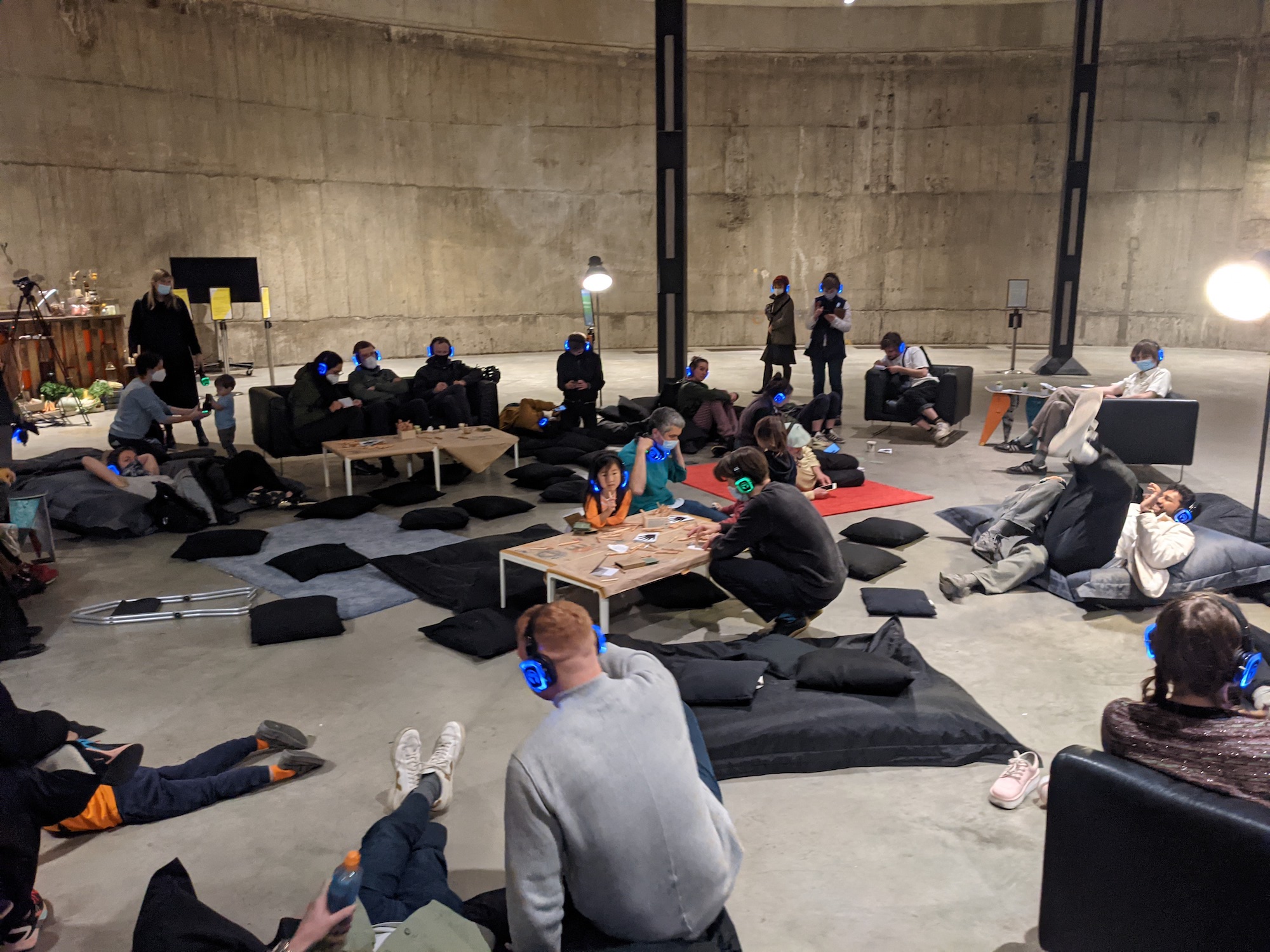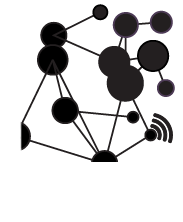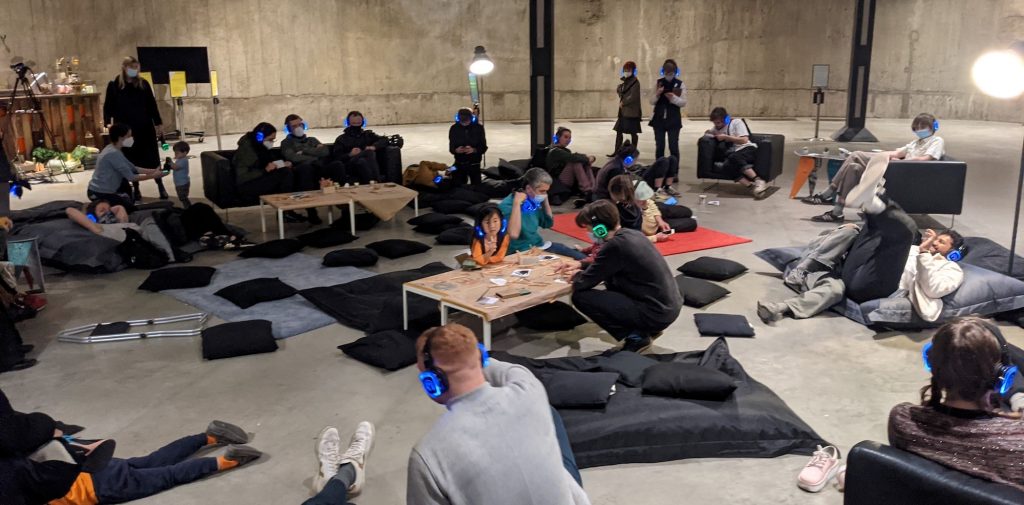
On Saturday 30th October 2021, CASA’s Leah Lovett joined artist and playwright Hester Chillingsworth in conversation at Tate Modern. The event took place in The Living Room as part of Power to Change, a festival of free workshops, artist’s commissions, films, food and talks to mark the start of COP26 in Glasgow. Artists were invited to respond to questions of climate and ecological emergency with the aim of inspiring and accelerating action around intersecting crises.
Leah and Hester’s conversation spanned arboreal societies and walking in tree time, the impacts of climate change on the material properties of wood, and the potential for using arts-led approaches to highlight and counteract heatwave risks.
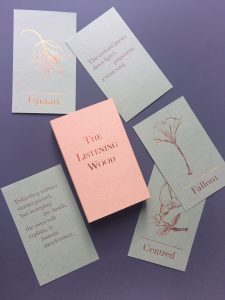
The Listening Wood (2019). Drawings and poems by Leah Lovett.
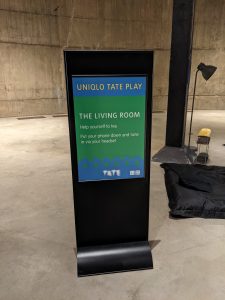
The event took place in the Tanks at Tate Modern
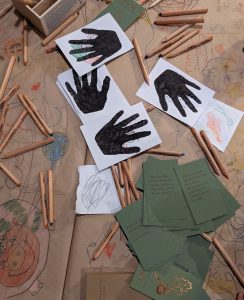
ThermoInteractive postcards and cards from The Listening Wood deck were available for audiences to explore
During the session, Leah read poems from The Listening Wood deck, a set of cards produced to accompany the interactive installation created by the Connected Environments lab in partnership with the City of London Corporation for Golders Hill Park and Hampstead Heath. The Listening Wood project was developed as part of the wider EPSRC PETRAS project to explore issues of trust around the use of IoT technologies in public places.
There were also opportunities for families to interact with experiments by the ThermoInteractive Collective, a group of researchers, humanitarians, artists and cartoonists that has grown from Connected Environments-led research into community-based early warning systems for urban heatwaves. Funded by the British Academy, Urban Heatwaves, Just Transitions is exploring the potential for using arts-based methods to highlight the risks of heatwaves to public health and infrastructures, and opportunities for resilience and adaptation. The project is being developed in partnership with the Red Cross Red Crescent International, the British Red Cross, and Thames Ward Community Partnership.


Part of this work has involved an exploration of light- and heat-responsive art materials, including thermochromic pigments, which alter appearance at specified temperature thresholds. Using black-clear pigment, the ThermoInteractive Collective has designed a series of interactive postcards and facemasks that employ humour and striking imagery to convey inspirational climate messages. The cards and facemasks are also appearing in sessions facilitated by Dr Pablo Suarez, co-investigator on the Urban Heatwaves, Just Transitions project, as part of COP26.
